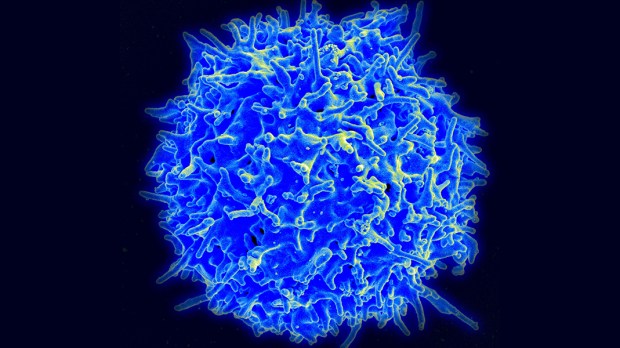Lenten Campaign 2025
This content is free of charge, as are all our articles.
Support us with a donation that is tax-deductible and enable us to continue to reach millions of readers.
It’s been 18 years since President George W. Bush issued a compromise decision on funding of embryonic stem-cell research, allowing tax dollars to be used only for lines already developed from embryonic stem cells.
But to date, there have been no cures developed from embryonic stem-cell research for any diseases.
Adult stem-cell research, on the other hand, has produced results. One researcher that has made strides in developing cures is the John Paul II Medical Research Institute, based in the Iowa City suburb of Coralville.
“We’ve been able to differentiate these stem cells into every type of tissue that’s available in the human body,” Jay Kamath, the institute’s president, told Catholic News Agency. “We have a huge repository of stem cells.”
While induced pluripotent stem cells are often created through the use of viruses or a type of tumor-creating gene called oncogenes, Kamath said, the John Paul II Institute has developed new methods, CNA reported.
There has been research at the John Paul II Institute, founded in 2006, that may help those who suffer from Niemann-Pick disease type C, a rare disorder that affects the body’s ability to transport cholesterol and other fatty substances within the cells. The disorder can cause dementia-like problems at an early age, and can kill if left untreated.
Parents of two children contacted the institute looking for a stem cell therapy for Niemann-Pick. “I convinced the parents that the best and quickest approach was to create stem cell models of their children’s disease so that those cell lines could be distributed to research organizations to test drugs that may have a therapeutic benefit,” Alan B. Moy, the institute’s founder, told Aleteia. “At the time, there were no adequate cell models for this disease. So the Institute arranged for them to come to Mercy Hospital of Iowa City to have our plastic surgeons and doctors harvest fat from these children to produce stem cell models of Nieman-Pick Type C. Those stem cells were distributed to the University of Alberta and NIH.”
There was data that suggested that a drug called hydroxyl-propyl-beta-cyclodextrin (HPBC) could reduced the cholesterol deficit in these patient’s neurons, Moy said, adding that children with Niemann-Pick die because they can’t metabolize cholesterol which accumulates and causes cell death particularly in nerve cells. “NIH tested this drug in the siblings’ fat derived stem cells, which reduced the cholesterol accumulation,” he said. “Thus, JP2MRI, along with other non-profits and academic centers, contributed to the rationale for identifying HPBC as a lead drug for treating NPC. This drug is now part of an industry-sponsored clinical trial. ”
Now the institute is developing two adult stem cell lines, which Kamath hopes will be able to advance research to displace or replace a human embryonic kidney cell line in drug development or vaccine development.
Kamath spoke of the urgency of raising funds in order to continue research into adult stem cells. If ethical alternatives to human embryonic stem cells are not developed, Catholic hospitals might one day be faced with a stark choice between offering medical interventions that are tainted by immoral sources or being accused of failing to offer standard care.

